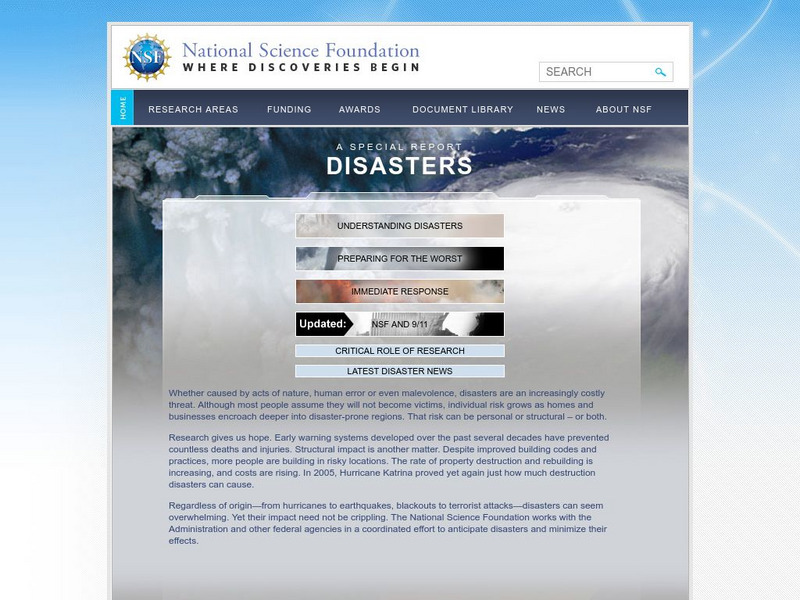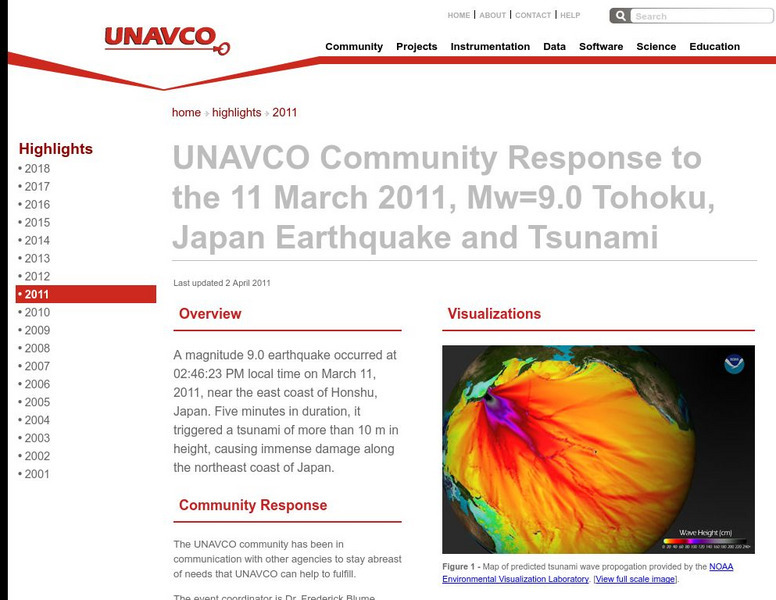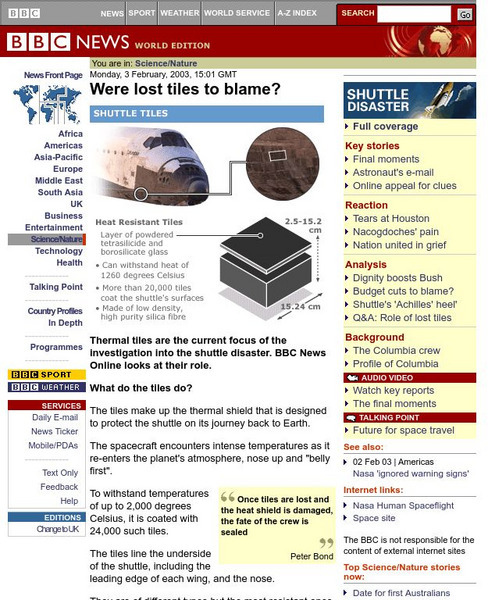American Museum of Natural History
Volcanoes Magma Rising
Get ready for an explosive lesson! Learners read and interact with an online lesson describing the characteristics of volcanoes. They study specific historical volcanoes as well as the science of volcanic eruptions using animations and...
American Museum of Natural History
Tornadoes Spinning Thunderstorms
Tornado winds can reach more than 200 miles per hour. Learners explore wind speeds and more characteristics of tornadoes with an online lesson. They learn how tornadoes form and how scientists attempt to predict them. Can be used as an...
Curated OER
Bermuda Triangle
Young scholars explore what the Bermuda triangle is and the theories as to why it is so mysterious. In this mystery lesson students read and discuss the history and the mystery behind the Bermuda Triangle.
National Science Foundation
National Science Foundation: Disasters
The National Science Foundation provides us with a comprehensive report on disasters; understanding them, how to prepare for them, responding to them, and the latest news. Learn about the risks involved and how to minimize the effects.
Scholastic
Scholastic: Severe Weather and Natural Disasters
Learn about severe weather and natural disasters through experiments, witness accounts, vocabulary, and much more.
Other
Hurricane Science: Hurricanes: Science and Society: Galveston 1900
Article on the science of hurricanes and the effect on society, featuring Galveston, 1900. With map, list of facts and embedded links to vocabulary and related material.
Woods Hole Oceanographic Institution
Woods Hole Oceanographic Institution: Tsunami: An Interactive Guide
A complete, interactive learning activity covering the science of tsunamis, preparedness, research, and historical tsunamis. Excellent animations and real, historical recordings of survivors allow the learner to experience what happens...
Columbia University
Scientific Background on the Indian Ocean Earthquake and Tsunami
This site features information and related links that can be used by students and scientists to understand the events that led to the December 2004 Indian Ocean tsunami.
PBS
Pbs Learning Media: Out of Proportion
Students are asked to explain how natural disasters affect environmental health.
US Geological Survey
U.s. Geological Survey: Search
The U.S. Geological Survey offers information for teachers and students interested on Earth Science research. Contains references to general information as well as current research and events.
Other
Unavco: Event Response to the Mw=9.0 Tohoku, Japan Earthquake and Tsunami
Relevant data connected to the earthquake as well as links to technical information and science websites. Also find many graphs and charts with information on the tectonic activity.
Other
Planet Ark: World Environmental News
Welcome to Planet Ark's daily Reuters World Environment News - the most comprehensive source of environmental news on the Net. To read previous news stories, please use the search engine below to find stories relating to any...
BBC
Bbc: Were Lost Tiles to Blame?
From February 2003, a Q&A discussing damaged tiles and other problems that the Space Shuttle Columbia faced during its re-entry and subsequent explosion.
US Geological Survey
Usgs: Tsunami & Earthquake Research
The USGS provides an extensive section of information about tsunamis. The items presented are the basics of tsunamis regarding the Great San Francisco earthquake of April 18, 1906, tsunamis in the U.S. Pacific Northwest, and the 1998...
BBC
Bbc: Columbia: Space Pioneer
The BBC provides a brief profile of the Space Shuttle Columbia before its demise in 2003.













